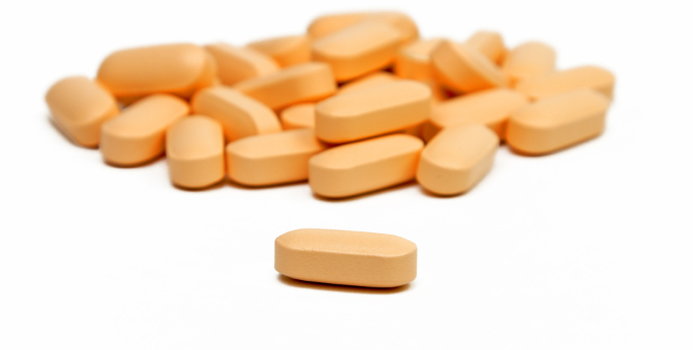The main function of vitamin E is to protect your cells from free radicals. Metabolic wastes, smoke and other environmental pollutants induce high levels of oxidative stress on the cell membranes, causing damage, premature cell death and increasing their likelihood for mutation. Vitamin E also serves as a regulator in many enzymatic functions.
Adequate intake of this vitamin is required for proper functioning of your body and for prevention of a number of diseases and cancers. However, because vitamin E can only dissolve in fat, elimination of the excess amount is much more difficult compared to the water-soluble vitamins. Therefore you should not mindlessly take extra vitamin E supplements. Mega-dosages of this vitamin can cause more harm than good. Overdose symptoms include muscle cramps, diarrhea, fatigue and double vision. Severe toxicity and death can occur if you reach beyond the 3,000 I.U. upper tolerance level.
Health Values
Vitamin E is extremely efficient in binding and neutralizing free radicals that come near your cells. Studies have shown that vitamin E works best in combination with vitamin C and other antioxidants, and proper intake of these vitamins can help prevent age-related visual deterioration, improve your skin condition, and reduce your cancer risks.
Vitamin E is also highly important to your cardiovascular system. It can protect your blood vessels from reducing the oxidative effects of your low density lipoproteins (LDL). It is serves as an anticoagulant and prevents blood clotting and the formation of plaques. Studies have shown that increased intake of this vitamin can help prevent or delay atherosclerosis and other coronary heart diseases.
Dietary Intake
For the vast majority, maintaining the recommended intake amount of 15 milligrams or 22.5 I.U. per day is enough to support your body's need of vitamin E. Pregnant women should take a minimum of 19 milligrams or 28.5 I.U. per day.
The best way to meet your vitamin E requirement is through dietary intake. Studies have shown that dietary vitamin E is more effective in tumor suppression and cancer prevention than supplementary vitamin E. Vitamin E is highly abundance in vegetables oils, nuts and seeds. Wheat germ, sunflower and almond oil are the top three in vitamin E content. Many cereals and whole grain products are also fortified with this antioxidant.
Extra Supplements
If you have a family history of heart disease or high cholesterol, you should take an extra supplement of vitamin E in addition to your diet. Studies have shown that increased vitamin E consumption can reduce the potential of myocardial infarction in both men and women. The treatment group who took 100 I.U. of vitamin E per day has reduced their risk potential by as much as 30%. Women who took extra vitamin E supplement are also less likely to suffer venous thrombo-embolism. However, there is evidence to show that if you take more than 400 I.U. of vitamin E per day, you may be at higher risk of bleeding disorders and deaths.
If you are a diabetic, your exposure to oxidative stress and your risk of cardiovascular complications are also higher. Studies have shown that taking 100 I.U to 200 I.U. of vitamin E can significantly improve your insulin action and glucose disposal.



